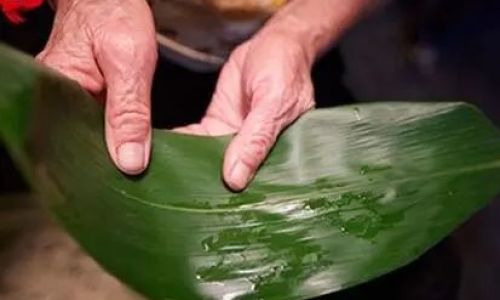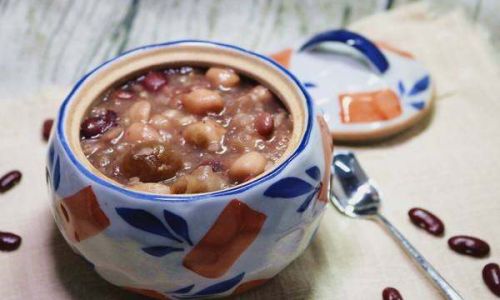Table of content
Cherries, with their vibrant hues, sweet-tart flavor, and juicy texture, are a beloved summer treat. Whether you’ve stocked up during peak season or received a generous batch as a gift, understanding how to store cherries properly is key to enjoying them at their best. One of the most common questions among cherry enthusiasts is: How long can cherries last in the refrigerator? This article delves into the science of cherry storage, practical tips for extending freshness, and signs of spoilage to watch out for. By the end, you’ll have a clear roadmap to preserve these delicate fruits and minimize waste.
The Basics of Cherry Storage
Cherries are perishable due to their high water content (about 80%) and thin, porous skin. Unlike harder fruits like apples or oranges, cherries lack a protective rind, making them vulnerable to moisture loss, bruising, and microbial growth. Proper refrigeration slows down these processes, but it’s not a one-size-fits-all solution. The lifespan of cherries in the fridge depends on several factors, including their ripeness at the time of purchase, storage conditions, and handling practices.

Optimal Refrigeration Temperature
The ideal temperature for storing cherries is between 32°F and 36°F (0°C and 2°C). Most refrigerators are set to around 37°F (3°C), which is slightly warmer than optimal but still effective. Avoid storing cherries in the coldest parts of the fridge, such as the back near the freezer, as freezing temperatures can damage their cells and cause them to turn mushy.
Humidity Control
Cherries thrive in high-humidity environments. Modern refrigerators often have crisper drawers with adjustable humidity settings. For cherries, set the humidity to high to prevent moisture loss. If your fridge lacks this feature, store cherries in a perforated plastic bag or a container lined with paper towels to absorb excess moisture without drying them out.
Avoid Ethylene Gas Exposure
Cherries are sensitive to ethylene, a natural gas emitted by fruits like apples, bananas, and tomatoes. Ethylene accelerates ripening and spoilage, so keep cherries away from these produce items. Store them in a separate drawer or compartment if possible.
How Long Do Cherries Last in the Fridge?
Under optimal conditions, fresh cherries can last 7 to 14 days in the refrigerator. However, this timeline varies based on their initial quality:
- Unripe cherries: May last up to 14 days as they ripen slowly in the cold.
- Ripe cherries: Typically last 7–10 days before showing signs of decay.
- Overripe cherries: Will deteriorate within 3–5 days, even when refrigerated.
Key Takeaway: Always inspect cherries before refrigeration. Remove any damaged, bruised, or moldy fruits to prevent spoilage from spreading.
Step-by-Step Guide to Storing Cherries
Sorting and Cleaning
- Sort thoroughly: Discard cherries with cracks, soft spots, or mold. One rotten cherry can spoil the entire batch.
- Do not wash before storing: Moisture accelerates spoilage. Rinse cherries just before eating or using them in recipes.
Container Selection
- Airtight containers: Use containers with tight-fitting lids to protect cherries from absorbing fridge odors. Punch small holes in the lid for ventilation.
- Perforated plastic bags: These allow airflow while retaining humidity. Avoid using sealed plastic bags, as they trap moisture and promote mold.
- Glass jars: An eco-friendly option, but ensure the jar is not overfilled to prevent bruising.
Layering Technique
- Place cherries in a single layer to avoid crushing. If stacking is necessary, use paper towels between layers to absorb excess moisture.
Storage Location
- Store cherries in the main compartment of the fridge, not the door. The door’s temperature fluctuates more due to frequent opening.
Signs of Spoilage to Watch For
Even with proper storage, cherries will eventually spoil. Here’s how to identify when they’re past their prime:
-
Texture Changes:
- Shriveled skin: Indicates dehydration.
- Mushy spots: A sign of bacterial or fungal growth.
-
Discoloration:
- Brown or gray patches: Mold formation.
- Dull, faded color: Loss of freshness.
-
Off Smells:
A fermented or sour odor suggests spoilage.
-
Taste Test:
If in doubt, taste a cherry. A bitter, alcoholic, or overly soft texture means it’s time to discard.
Pro Tip: Always check the stem end first, as this area is prone to moisture buildup and mold.
Extending Cherry Shelf Life: Advanced Tips
Vinegar Rinse (For Short-Term Preservation)
- Mix 1 part white vinegar with 3 parts water.
- Rinse cherries briefly, then dry them thoroughly with a clean towel.
- This kills surface bacteria and mold spores, extending freshness by 2–3 days.
Caution: Do not soak cherries for too long, as vinegar can alter their flavor.
Freezing for Long-Term Storage
If you won’t consume cherries within two weeks, freezing is an excellent option:
- Wash and dry: Remove stems and pat cherries dry.
- Arrange on a baking sheet: Freeze individually first to prevent clumping.
- Transfer to airtight bags: Label with the date. Frozen cherries last 8–12 months.
Uses for Frozen Cherries: Smoothies, baked goods, jams, or as a cold treat (they’ll be soft when thawed).
Dehydration
- Use a dehydrator or oven on low heat (135°F/57°C) to make cherry chips or leather.
- Store dried cherries in an airtight container for up to a year.
Common Mistakes to Avoid
-
Storing at Room Temperature:
Cherries will spoil within 1–2 days outside the fridge. -
Overcrowding Containers:
Crushed cherries release juices, creating a breeding ground for mold.
-
Ignoring Ethylene-Sensitive Pairings:
Never store cherries near apples, bananas, or avocados. -
Freezing Without Preparation:
Frozen cherries without proper drying become icy and lose texture.
The Science Behind Cherry Spoilage
Cherries, like all fruits, undergo respiratory processes even after harvest. In the fridge, lower temperatures slow down:
- Enzyme activity: Enzymes responsible for ripening and browning.
- Microbial growth: Bacteria and fungi thrive in warmer temperatures.
- Ethylene production: Cherries produce minimal ethylene but are highly sensitive to it.
However, refrigeration isn’t a pause button. Over time, cherries will still lose firmness and sweetness as their cell walls break down.
Nutritional Value Over Time
While refrigeration preserves flavor and texture, some nutrients degrade gradually:
- Vitamin C: Loses potency after 7–10 days.
- Antioxidants (anthocyanins): Remain stable for up to two weeks.
- Fiber: Largely unaffected by storage.
Tip: Prioritize eating cherries within the first week for maximum nutritional benefits.
Creative Ways to Use Cherries Before They Spoil
-
Baking:
- Cherry pie, clafoutis, or muffins.
- Roast cherries with balsamic vinegar and honey for a gourmet topping.
-
Beverages:
- Cherry-infused water or lemonade.
- Homemade cherry syrup for cocktails or soda.
-
Savory Dishes:
- Pair with pork tenderloin or duck breast.
- Add to salads with goat cheese and walnuts.
-
Preserves:
Jam, jelly, or cherry compote.
FAQs About Cherry Storage
Q1: Should I remove the stems before refrigerating?
A: Leave stems intact until consumption. Stems help protect the fruit from bruising and moisture loss.
Q2: Can I store cherries in a bowl on the counter?
A: Only if you plan to eat them within a day. Otherwise, refrigerate immediately.
Q3: Why do my cherries taste bitter after refrigeration?
A: Overchilling (below 32°F/0°C) can damage cells, releasing bitter compounds. Check your fridge’s temperature.
Q4: Can I revive shriveled cherries?
A: Soak them in ice water for 15–20 minutes to plump them up slightly. However, this won’t restore spoiled flavor.
Q5: Are wrinkled cherries safe to eat?
A: If they’re not moldy or overly soft, they’re safe but may be mealy. Use them in baking or smoothies.
Conclusion
Cherries are a fleeting delight, but with mindful storage, you can savor their sweetness for up to two weeks. By controlling temperature, humidity, and ethylene exposure, and by avoiding common pitfalls, you’ll reduce food waste and enjoy these gems at their peak. Whether you’re a casual snacker or a baking enthusiast, treating cherries with care ensures every bite is as delightful as the first. So next time you bring home a batch, remember: a little refrigerator TLC goes a long way.






0 comments